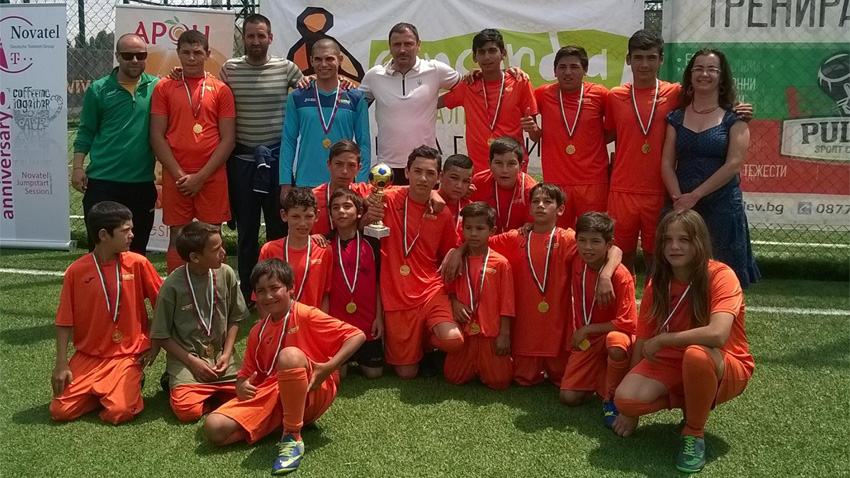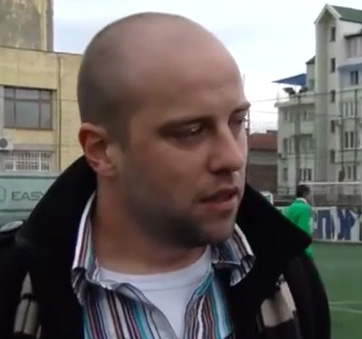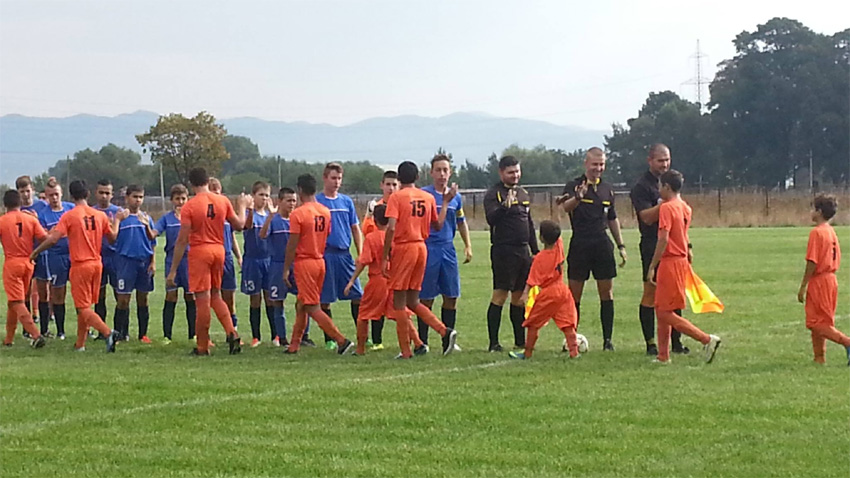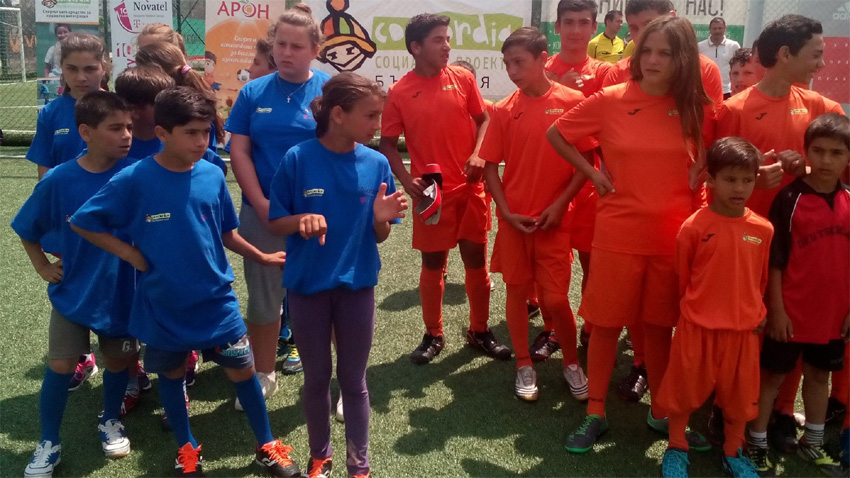For two years, a children's football club has been giving an open lesson to the Bulgarian society on tolerance and mutual acceptance. Respect and mutual help are the magic words, thanks to which ethnic Roma children and children from poor Bulgarian families have formed a strong team.
The Concordia Bulgaria Foundation decided to establish a football club after having successfully organized an international children's football tournament three years ago. For this purpose, a professional coach was hired and 40 children from the Roma neighborhoods and the foundation’s social institution for children without parental care were selected. The municipality has provided a stadium for free. Thus, in the past year the team, consisting of 70% Roma and 30% Bulgarian children, for the first time took part in a children’s championship, placing 9th.

 “Our team is comprised of children from our social institution, Roma children from the Orlandovtsi and Hristo Botev neighborhoods in Sofia and children from the Hadzhi Dimitar quarter,” Petar Krumov from the foundation says. "Initially the children were separated in several groups and it took us half a year to create a team of them so they can acquire social skills. But today I can gladly say that they are all friends and have begun to support themselves not only on the pitch. They even created a group in social networks and go out together outside of the institution and outside the neighborhood. The other positive thing is that the children of our team started to maintain very good contact with children from other teams without tension and are very well received.”
“Our team is comprised of children from our social institution, Roma children from the Orlandovtsi and Hristo Botev neighborhoods in Sofia and children from the Hadzhi Dimitar quarter,” Petar Krumov from the foundation says. "Initially the children were separated in several groups and it took us half a year to create a team of them so they can acquire social skills. But today I can gladly say that they are all friends and have begun to support themselves not only on the pitch. They even created a group in social networks and go out together outside of the institution and outside the neighborhood. The other positive thing is that the children of our team started to maintain very good contact with children from other teams without tension and are very well received.”

Petar Krumov cannot say who is responsible for ethnic tension and fights like the recent case in Asenovgrad. He adds that for his eight-year activity in the foundation he has seen aggression from both ethnic Roma and Bulgarians but he has been pleasantly surprised by the parents of the children in the team.
“I thought we would have problems with the parents, but these people turned out to be of great help to the team," Petar Krumov says. “When needed, they help us maintaining the pitch, solving problems and always want to be fully involved in everything we do. Most of these children do not have very high grades in school, but they have not dropped out and the parents are also responsible for that. We maintain continuous contact with them and we also help them with learning. When a child in the team needs pedagogical help, we provide teachers for them. But nothing happens without parents' consent.”
Sport remains the best means of overcoming ethnic prejudices, Petar Krumov believes.

“In sports, it is proven that ethnicity and religion are irrelevant and only personal qualities matter,” he says. “If a player has darker skin complexion, it does not make him a worse player and other people and spectators respect him only because of his qualities. That is why sport is one of the few options for socializing these children. First of all, we want to teach them hard work, teamwork, fair play. Winning is not as important as playing in the best way you can, respecting the opponent, knowing that this is an environment that can support you together with the family. We also motivate children to study, as one of the rules to be part of the team is not to drop out of school.”
In the new season, Concordia Club has new goals - entering the top six of the children’s championship and creating a second team of children born in 2004.
English: Alexander MarkovA new book "Bulgarian communities in Albania and Kosovo. Socio-political processes and demographic consequences (1913-2024)" was presented in Sofia. The work of Assoc. Prof. Spas Tashev, demographer at the Bulgarian Academy of..
Students block the entrances to the Radio and Television of Serbia For 12 days now, students and citizens have been blocking the entrances to Serbia’s national radio and television broadcaster (RTS) in protest against how the state media is..
In the Schaarbeek municipality of Brussels, there is a small corner of Bulgaria inside the Sophia Municipal Library, housing a valuable collection of Bulgarian books. Librarian Aaron Willem played a key role in setting up the Bulgarian section of the..
The group cycling tour along the tourist route of the Black Sea Route Epic Tour 2025 started today . According to the extreme sports website 360mag.bg, a..
Cambridge Day 2025 - one of the leading events for English language teachers in Southeast Europe - takes place today at the Balkan Hotel in Sofia. For..
Students block the entrances to the Radio and Television of Serbia For 12 days now, students and citizens have been blocking the entrances to..

+359 2 9336 661
